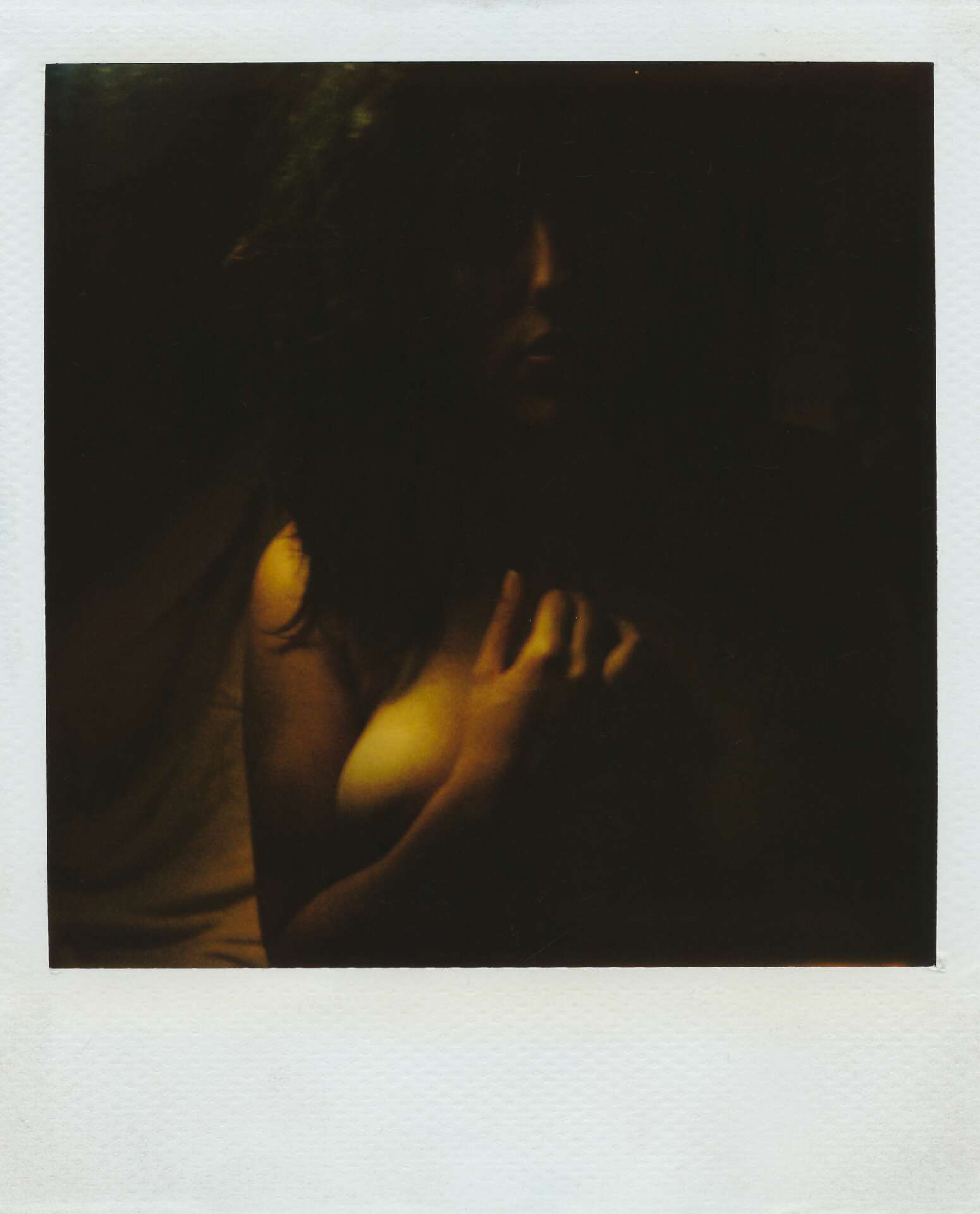We were lucky to catch up with Lucretia Tye Jasmine recently and have shared our conversation below.
Alright, Lucretia Tye Jasmine thanks for taking the time to share your stories and insights with us today. We’d love to hear about when you first realized that you wanted to pursue a creative path professionally.
The word “professional” has long been difficult for me because I’ve had such a critique of conformity and the status quo. I’ve never fit in. Also, it never occurred to me that I could actually earn enough money to support myself as a writer or as an artist. I’ve had a very difficult time figuring out how to earn above poverty level at any job. I don’t know if it’s low self-esteem, or a difficulty with capitalism and self-promotion, or maybe a discomfort with labels and other people, but it took until I was this age -fifty-seven – to identify myself without apology or embarrassment or nervousness as an artist, and as a writer. When I was in first or second grade @1972-1973, an art class in elementary school at St. Francis in Goshen, KY., felt really good to me. My grandfather, the architect, Jasper D. Ward, designed the school. My art teacher – Kate Fisher, who was my mom’s good friend, and a real artist – really liked my artwork of still-lifes, and her validation of my efforts made me feel like I was an artist. So I decided to make a whole book of art, and I did! Hand-bound and filled with wild and colorful art. I also designed gowns.
My mom, the oral historian and schoolteacher, Lucretia “Teka” Ward, enrolled me in a pottery class taught by the artist, Sarah Frederick, which really made me understand how artmaking was natural and good for me. I was about eight years old.
I took music lessons at Emmett Field in 5th grade and Barrett Middle School in Louisville, KY – and those really helped me see that I wasn’t a musician! I tried violin, piano, clarinet, guitar. I even took lessons after school, thanks to my mom. I adore music and most of my writing and art is about music but haha! I’m so not a musician! My uncle, the musician, James Runyon Ward, tried to teach guitar to me when I was thirty-nine! I think music takes practice and I was frustrated that it didn’t come as easily to me as making art and writing. I know now that making art and writing takes practice – and so does making music.
But I love when I dream of melodies.
My grandparents, Jasper D. Ward, and the activist, Lucretia “Lukey” Ward, knew I was an artist before I could see or admit it. I look back and see how they encouraged my artistry without pressure. I think they perceived the bedrooms I decorated throughout my childhood as works of art, like installations, and the way I dressed as an artist statement.
My mom, and my brother, Lacey T. Smith, Jr., and I moved around from place to place a lot. I always had the best bedrooms because Mom let me decorate them however I wanted! Posters of musicians and magazine layouts of beautiful clothes, striking advertisements, strewn beads and ribbons and fringed piano shawls and various velvets and faux furs and variously textured materials as rugs, antique bottles and various cosmetics and mirrors and an old-fashioned dressing table my brother found for me at a street sale for five bucks, in Lexington, KY. He was just nine years old! I was ten.
The dressing table had a kidney-shaped cream-colored cloth-covered top with a pleated orange satin skirt that had a heavy lace overlay and a matching armless chair. So glamorous and sumptuous! My make-up left beautiful colored stains on the table-top fabric, which looked cool, too. It was art.
Writing was and is a little bit different because it comes from a well inside me that feels like a current I must channel. It’s like a necessary inner organ. It’s something I’ve always had, and maybe something I’ve taken for granted or ignored so I can try other creative modes. But I need it like a crucial inner organ is needed.
I kept diaries – my mom’s dear friend, Sarah Yates, gave one of my first diaries to me when I was about 7 years old, and when I was 12, my grandmother Lukey gave a diary to me. I wrote in them sporadically. It was when I was 11, and my mom bought a Nothing Book for me, that I realized I could put anything in it! I included drawings, and I wrote erotic fantasies about musicians, and pictures of beautiful women in ads for music. But in 8th grade, when my grandfather Jack gave a blue diary with a yellow flower on it to me for my 13th Christmas, I wrote so often in it that my diary became my best friend.
Every year in high school my mom bought two diaries for me: a blank book with a pretty flowery-patterned cloth cover, and a Country Diary calendar for daily recording. I think the journalism recording combined with the fiction writing made me realize something cool: that I could write creatively. There’s a kind of pressure with journalism that fiction doesn’t have for me, fiction feels exciting and free and so imaginative, but I find deep comfort in recording events. Poetry can be both without the hassle of naysayers questioning it.
Lukey made sure my creative writing got typed up when I was in high school. My father, the entrepreneur, Lacey Smith, Sr., gave my first typewriter to me when I was sixteen, and he bankrolled a summer writing course that same year. My uncle, Congressman Michael D. Ward, gave my next typewriter to me when I was twenty-one, and that typewriter had automatic backspace white-out! I’m sure my professors loved that because my papers were no longer like thick cakes covered with white-out icing!
My aunt, the photographer, Abigail Ward, and my uncle, the actor, Alexander Ward, always affirmed my creative and literary efforts. Alex got a job for me when I was twenty-two, at an art gallery in NYC! Which I couldn’t do because I was making a film at NYU that year, and I had no idea how rare opportunities such as getting a job like that were. But it furthered my sense of myself as an artist. And Abby helped me get a job when I was forty-one as an art history professor.
I provided all those details because I want to honor my family, and to show their influence. Also for the record. I grew up in a family of artists, writers, musicians and activists. Yes, there was a lot of sadness, and many very troubled times. Nobody was rich and famous, either. The one rich person didn’t share. But there was the artistry, the creativity, the laughter, the coolness. I see it all as I look back, their belief in me as an artist and as a writer (however mixed in with a bunch of other stuff that wasn’t so great). I just couldn’t see that I was an artist! But I see it now. And I just didn’t understand how writing could be a way to earn a living. I’m trying to see that now.
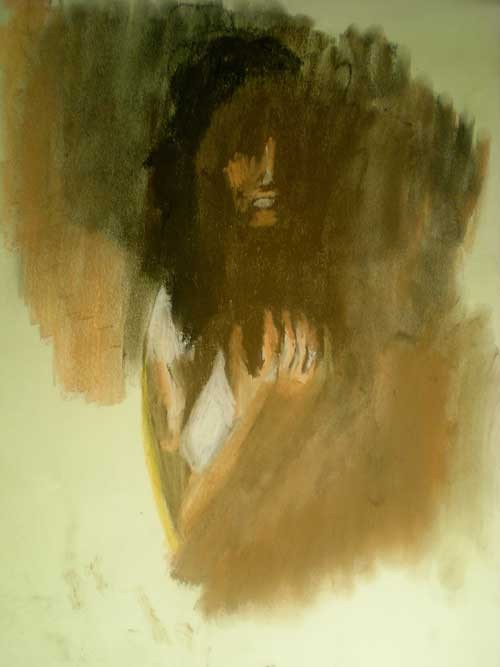
Awesome – so before we get into the rest of our questions, can you briefly introduce yourself to our readers.
I’m an artist, writer, and interviewer. I decided to write for publication and pay in 1999, when I was 33, after I’d quit yet another low-paying and unfulfilling job. I needed to do something that was meaningful! I’d been making zines (since 1987) because it was the least expensive form of artmaking, and collage was a way to deconstruct the misogyny and speciesism that disturbed me in popular culture, but as I gazed at my boyfriend’s computer that night in ‘99, I realized I could easily write longer work. A few years later, when I was thirty-seven, my mom bought art supplies for me after I’d secured grants to take art classes at UCLA.
And then I went to graduate school for art and writing. How I wish I’d taken a dual degree! But I focused on writing, earning an MFA in critical studies/writing. My thesis was in the form of a zine about gender, sexuality, and music.
When I was teaching art history (and writing about art) online full-time, and finally, finally! earning above poverty-level, I realized my colleagues and supervisors had very different priorities than I. I adored my students. Some of my most fulfilling times were in the classroom. But I really struggled with bosses and colleagues. So I needed something that felt driven by creative and ethical feminism. And that’s when I began my mixtape zines, which are oral histories, one about riot grrrl in Los Angeles during the early 1990s, and the other about groupies. I wrote a novel, unpublished as yet, about a tween fan who goes on the road with a pop star, taking her 7.5 pound Chihuahua and her tuxedo cat along for the ride, befriending groupies and roadies and finding her calling as a concert videographer. I wrote a collection of short stories, hopefully published soon, based on groupie legends and rock star lore. I also planned my Groupie Feminism art series.
I think what sets me apart from others is what sets us all apart from each other, but also connects us all so interestingly: originality and uniqueness.
I am most proud of my work when it is feminist, vegan-conscious, and cool. I really like my Groupie Feminism art series; my debut book, “‘70s Teen Pop” (Bloomsbury, for the 33 1/3 series, 2023); and the book I’m working on now with Chicago Review Press, “The Golden Era of Groupies: 1965-1978.” I also love my Polaroids, zines, lingerie catalogue paintings, beauty pageant series, and riot grrrl poster.
The main thing I want people to know about me and my work is that I’m sincere. I’m motivated by a real desire for authentic, ethical and productive connection; creativity; mutual understanding and shared profit; respectful community; and fun.
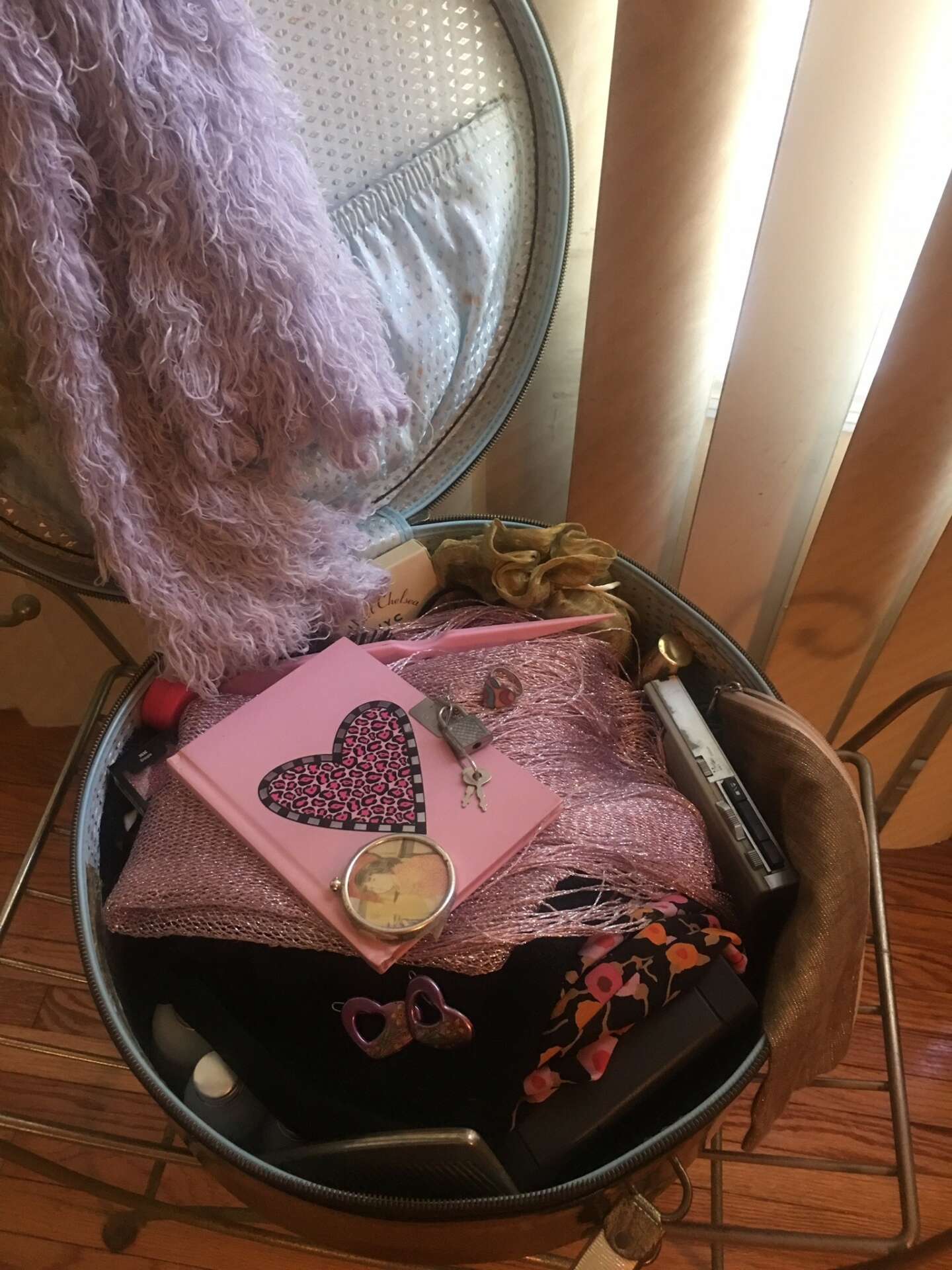
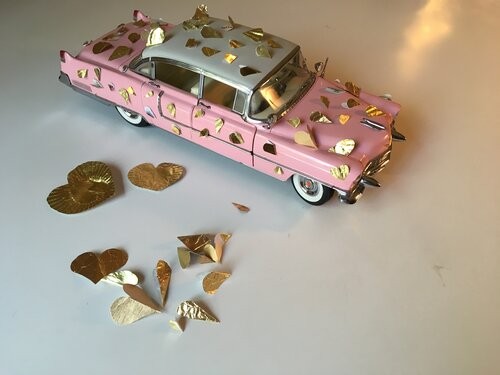
We often hear about learning lessons – but just as important is unlearning lessons. Have you ever had to unlearn a lesson?
That I wasn’t allowed to be in the world of people and have fun because of how I look. I think I learned it from a capitalist patriarchy preoccupied with physical “perfection,” and a few things that happened with my family and friends and at social events and out in the world of humans. I’m unlearning it as I age. I’m slowly realizing if someone doesn’t like how I look, then that’s about them. And to not internalize it. Very difficult! But, like most evolution, the process and progress of my beautiful healing is slow but hopefully certain.
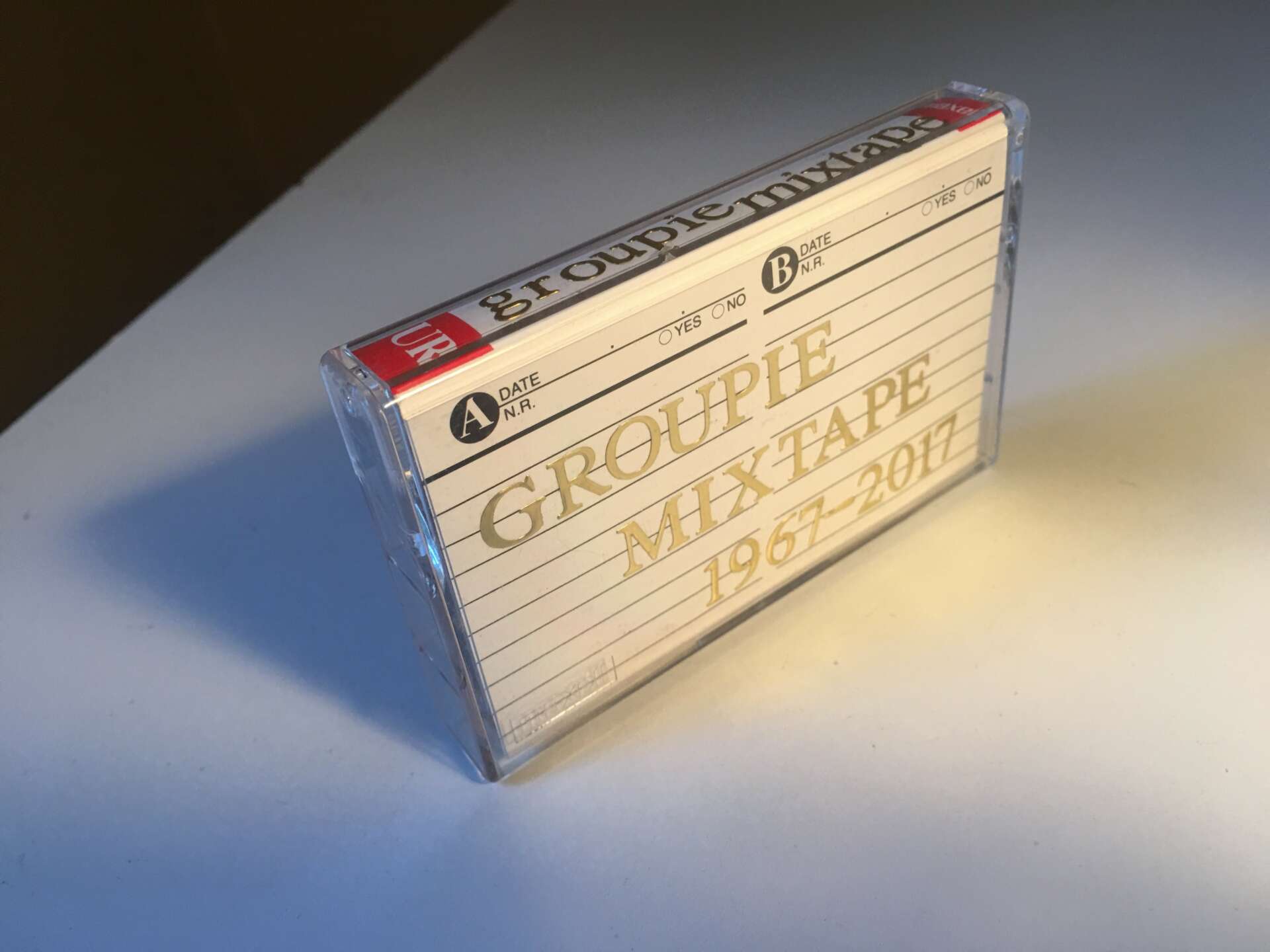
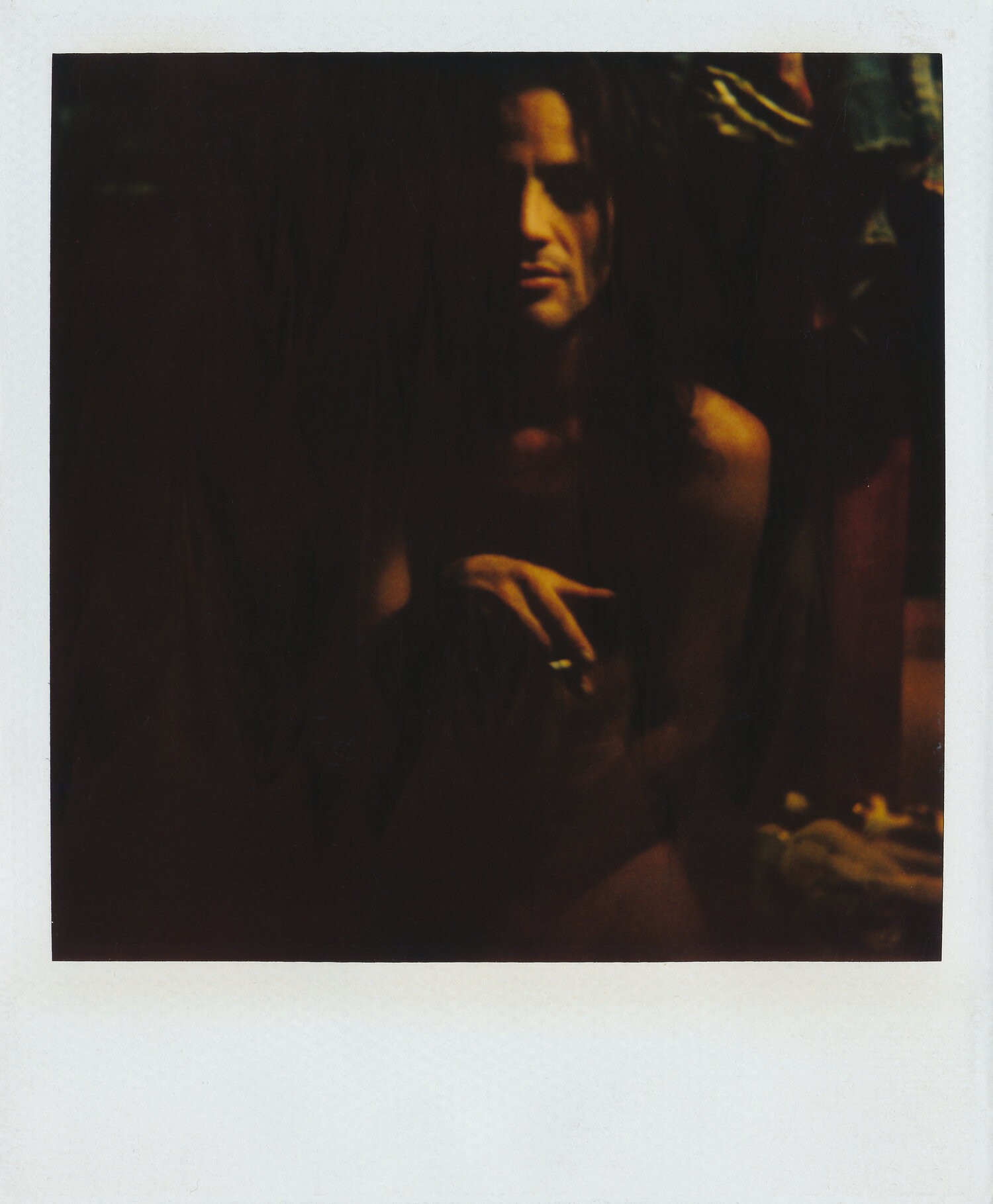
Let’s talk about resilience next – do you have a story you can share with us?
I think my resilience is demonstrated by my continuing to make art and write, and go anywhere out in public at all really, while being fat, poor, vegan and female in a fatphobic, money-chasing, speciesist and misogynist culture. I’ve experienced debilitating depressions since I was a kid. It’s been a challenge to be in the world of humans. I’ve also had some serious health challenges. I’m clean, sober, and abstinent from bulimia and self-harm for many many years. That’s resilience.
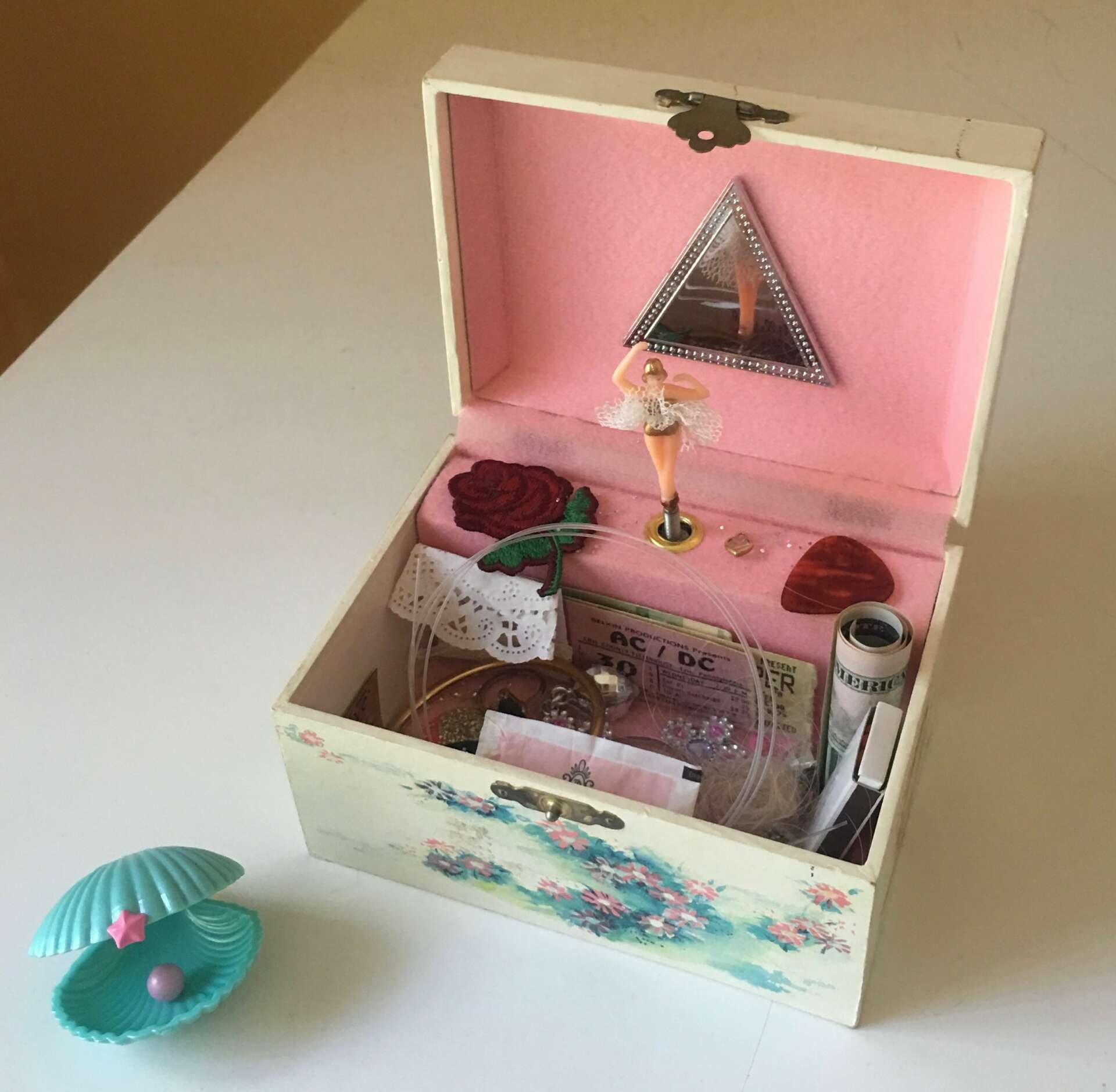
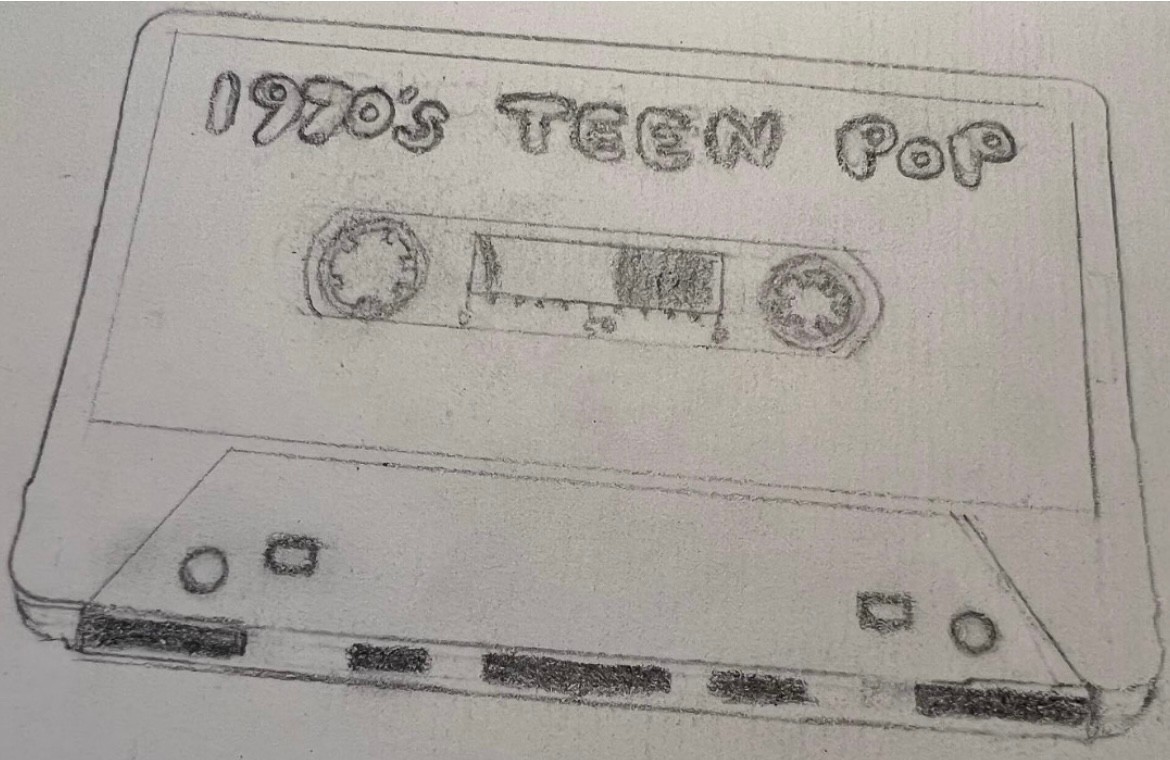
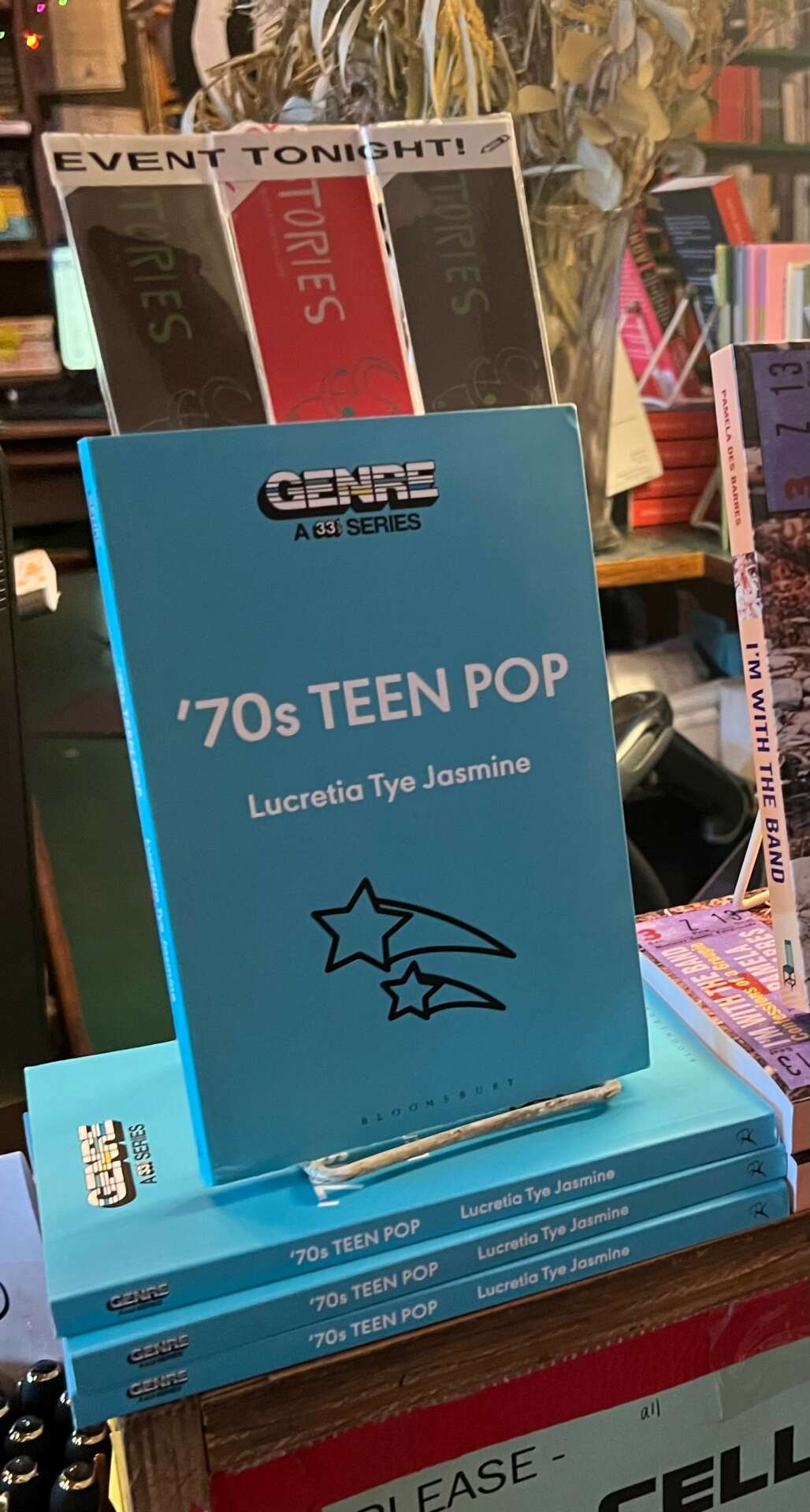
Contact Info:
- Website: https://www.lucretiatyejasmine.com/
- Instagram: @LucretiaTyeJas
- Facebook: https://www.facebook.com/lucretia.jasmine?mibextid=LQQJ4d
- Linkedin: Lucretia Ann Smith aka Lucretia Tye Jasmine
- Twitter: lucretia_tye_jasmine
Image Credits
All photos and art by Lucretia Tye Jasmine except for the Polaroid of LTJ, which was taken by Dennis John Mason.


